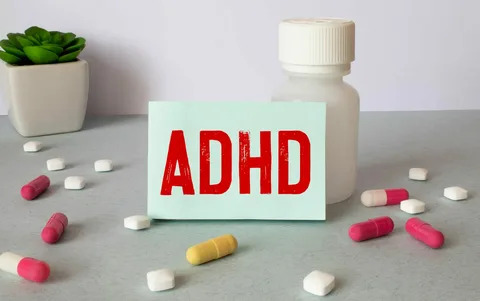Overview
Raising a child with ADHD (Attention-Deficit/Hyperactivity Disorder) can bring special difficulties as well as chances for development. Medication for ADHD has been a crucial component of all-encompassing treatment programs for kids with the disorder in recent years since it helps to manage symptoms and promotes general development. This article examines the connection between ADHD medication and parenting, emphasizing the ways in which medication can support the healthy growth and development of children with ADHD.
Recognizing ADHD in Children
Children with ADHD, a neurodevelopmental disease, struggle to control their hyperactivity, impulse control, and attention span. ADHD symptoms in children can include impulsivity, restlessness, trouble remaining focused, and trouble following directions or finishing tasks. Their academic performance, social connections, and self-esteem are just a few of the areas of their lives that may be impacted by these symptoms.
The Function of ADHD Drugs in Therapy
Medication for ADHD is administered to target the brain neurotransmitters that are involved for attention, focus, and impulse control. These neurotransmitters include methylphenidate, amphetamines, and atomoxetine and guanfacine. ADHD medication can greatly enhance a child’s capacity to operate in many contexts when taken in conjunction with behavioral treatments and educational interventions as part of an all-encompassing treatment plan.
ADHD Medication’s Parenting Benefits
1. Enhanced Concentration and Pay Attention
Enhancing a child’s focus and attention span is one of the main advantages of ADHD treatment. Children who have improved focus are better able to stay on target, obey directions, and participate in learning activities at home and at school. This translates into better academic performance, fewer homework-related arguments during homework sessions, and a more enjoyable learning environment for the child for the parents.
2. Improved Executive Capabilities
Additionally, taking an ADHD medication helps improve executive functioning abilities including planning, scheduling, and time management. With pharmacological support, children who struggle with these skills could find it easier to prioritize activities, divide work into manageable steps, and meet deadlines. Enhancing executive functioning leads to improved self-management abilities in a variety of spheres of daily life, in addition to improving academic achievement.
3. Decreased Hyperactivity and Impulsivity
Impulsivity and hyperactivity are common issues for kids with ADHD, and they can cause problems with safety, behavior control, and social situations. ADHD medications can help lower hyperactivity and impulsivity levels in children, allowing them to manage their impulses, think things through before acting, and behave appropriately in social situations. Better peer interactions, increased self-control, and a safer environment for the youngster can result from this.
4. Assistance with Emotional Control
Another area where ADHD medication might be quite helpful is in emotional regulation. Children diagnosed with ADHD may struggle to control their reactions to different situations and feel strong emotions. Medication can support a more balanced emotional state, lessen emotional outbursts, and calm mood swings. The child’s relationships with family, friends, and their general well-being all benefit from this emotional control.
Making Therapy Choices as a Parent
Making decisions on a child’s course of treatment, especially when it comes to medication, can be difficult for parents of ADHD children. To create an all-encompassing treatment plan that is customized to your child’s requirements, it is imperative that you collaborate closely with physicians, psychiatrists, and therapists, among other healthcare specialists. Medication management, behavioral techniques, academic accommodations, and support services are a few possible components of this strategy.
Resolving Issues and misunderstandings
Regarding ADHD medication, parents could have questions or run into misconceptions. Common worries include the stigma attached to medicating children for behavioral disorders, possible adverse effects, and the long-term repercussions of pharmaceutical use. It’s critical to discuss these worries candidly with medical professionals, obtain correct information regarding the advantages, disadvantages, and possibilities for medications, and make decisions that are tailored to your child’s specific situation.
Establishing a Helpful Environment
Creating a supportive atmosphere at home is essential to fostering growth and development in children with ADHD, in addition to medication and professional help. This entails laying out precise schedules, creating regularity and structure, establishing reasonable expectations, giving encouragement, and promoting candid communication. Parental understanding, tolerance, and involvement are crucial for the successful development of children with ADHD.
Conclusion: Using ADHD Medication to Strengthen Parenting
When used properly as part of an all-encompassing treatment plan, ADHD medication can be an invaluable tool for promoting children’s development, growth, and wellbeing. Nurturing the potential of children with ADHD requires parents to be aware of the advantages and drawbacks of ADHD medication, work closely with healthcare professionals, and establish a nurturing home environment. Through the use of behavioral methods, supportive parenting techniques, and the advantages of medication, parents can enable their children to overcome obstacles, succeed, and flourish in every facet of life.


